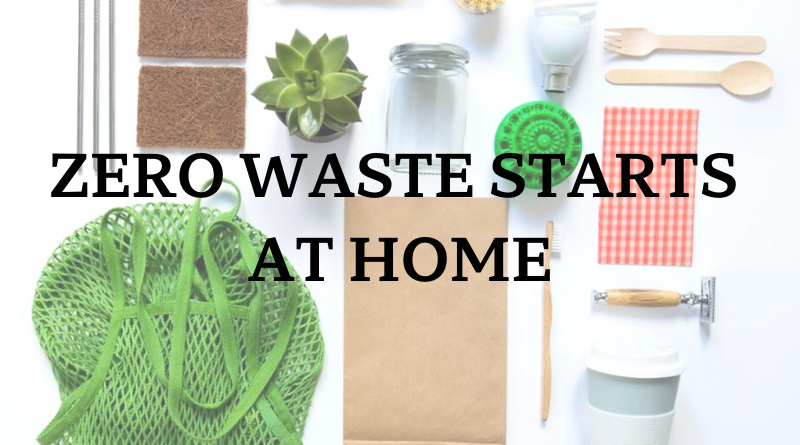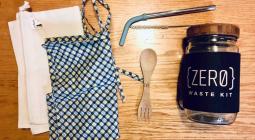The zero waste lifestyle starts at home

Today, we talk about circular economy, and sustainable waste management. Implementation proposals are made for consumers, politicians and producers. We tend to forget that these groups of people have one thing in common: the house.
Oh yes! It all starts at home, with the family. The habits we have were acquired at home. Sometimes through the channel of education received from parents or through daily personal experiences outside the family setting.If we have to talk about the circular economy, zero waste, it starts at home.
There are consumption habits such as: not throwing the rest of food in the trash, ensuring that it is well preserved, prioritizing the consumption of foodstuffs which are in the process of deterioration. These habits, I have acquired them by my upbringing. My mother was very careful about the points listed above. Above all, do not throw away the food. She took care of that to the point where any disobedience on our part deserved a good spanking. We didn't have to throw the food away and when that happened (when the storage conditions weren't right), she showed us how to manage it. We had composting for the family garden, animal nutrition (my father practiced animal husbandry), recovery tips when possible thanks to baking soda, rock salt, recycling techniques.
I kept them and grew up with them to the point where I find it unacceptable to see leftover food in the trash at parties and ceremonies. Over time, I made my own analysis of this gesture based on my training as an energy engineer. By analyzing the food preparation process from the point of view of energy expenditure, I developed an intransigence with regard to food waste. Starting from the production site of a food to the consumer's table, energy expenditure is made by the farmer (physical effort), at the level of transport by the farmer, the retailer, the industrialist for the transformation , the buyer, the cook (physical and emotional effort for the preparation of the meal). Considering this whole energy chain, seeing a dish end up in the trash is a waste.
Such habits start at home. Children can develop such habits. If the parents are not rigorous in correcting them , they will grow with and extend them to their profession, their lifestyle later. If, for example, children are not taught the principle of first in first out applied to clothing, they will develop consumerist habits.
The principle of first in first out in clothing here is to dress by selecting clothes that will be renewed if they lose their shine. All around, there is the programming of the wearing of these outfits, their frequency, the maintenance of the garment (do not get too dirty to avoid frequent washing and ironing which wear out the garment). It can be practiced to avoid frequent shopping. For example, one can buy a lot of clothes and organize them every year. We can decide to wear only a few for a year, transform them into house clothes when they lose their luster. And move on to other clothes from the wardrobe. And the older ones can be transformed into a dishcloth for cooking, cleaning, an apron, a shopping bag. This principle facilitates the circular management of clothing at the consumer level.
Or, if you give your child the habit of ordering another menu without having finished the first, you are encouraging the development of consumerist habits that are favorable to the production of waste. Same in clothing. If you give your children the habit of renewing their wardrobe once there is a tear, a stain without teaching him how to maintain it, without giving him deadlines for renewing clothes, he will have habits consumerists. The habit being a second nature, we will have a potential producer of waste.
The effectiveness of the circular economy, the goal of which is zero waste, begins with family education. Want to know how? Join the ZeWaLS community (the link is: https://chat.whatsapp.com/
Happy mid-week. And don't forget! You are able to practice the zero-waste lifestyle.




